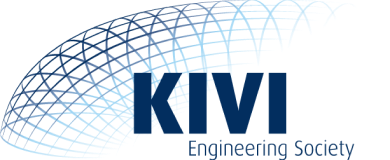
Immersed tunnels: Design phase, Sandflow with clinker & post-immersion settlement monitoring
Immersed tunnels: Design phase, Sandflow with clinker & post-immersion settlement monitoring
Join us for an engaging event hosted by KIVI International Engineers, focusing on cutting-edge developments in immersed tunnel design and construction. We will explore innovative approaches in three key areas:
- Design of Immersed Tunnels – The Scheldetunnel in Belgium
- Assessing the Suitability of Coarse Sand for Immersed Tunnel Foundations – Insights from the Khor al Zubair project in Iraq.
- Environmental causes for deformation and settlement of immersed tunnel – Addressing long-term performance challenges for tunnel infrastructure.
This event is an opportunity to dive into groundbreaking research, learn from practical case studies, and explore solutions for the future of tunnel construction and maintenance.
Presentations
Design of Immersed Tunnels – The Scheldetunnel in Belgium
By: René Kuiper
The Scheldetunnel project is part of the Oosterweel link in Antwerp Belgium which comprises the extension and upgrading of the ring road in Antwerp with a total cost off app. € 6 billion. The Scheldetunnel is an immersed tunnel under the river Schelde with an immersed length of 1280m consisting of 8 tunnel elements of 160m each which are built in the harbour of Zeebrugge and transported overseas to the site. The challenges for the immersed tunnel are the high surcharge loads in the embankments, the subsoil of over consolidated clay (Boomse klei) and the tidal difference of more than 5 meters during immersion.
TEC-partner RHDHV is the managing party of the JV STURINO and responsible for the design of the immersed tunnel.

Assessing the Suitability of Coarse Sand for Immersed Tunnels Foundation
This research investigates the feasibility of using coarse sand in the sand flow method for immersed tunnel foundations in the Khor al Zubair project, Iraq, an area subject to light seismic activity. The study explores a cost-effective alternative to traditional gravel beds by focusing on specific particle size requirements. Full-scale tests evaluated hydraulic pressures and flow rates, successfully achieving the desired "pancake" diameter of the sand layer, although the target relative density was not reached. The findings indicate a need for further testing and the possible use of adhesives to improve resistance to liquefaction. This research underscores the importance of advancing sand flow methods for tunnel construction in seismic zones.
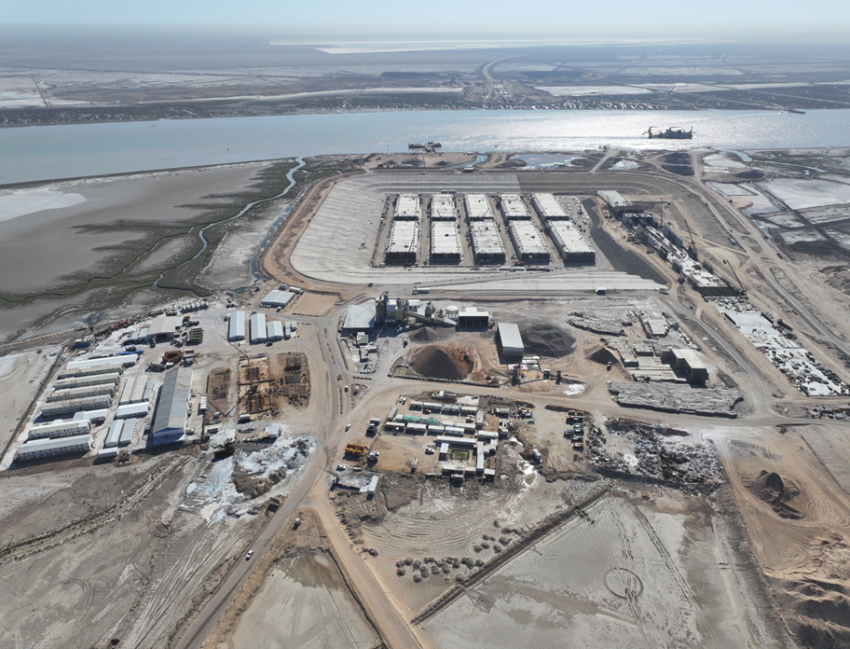
Environmental causes for deformation and settlement of immersed tunnels
By: Arne de Jong
The Maastunnel in Rotterdam, constructed in 1942, was the first immersed tunnel in the Netherlands. Today, around 30 immersed tunnels have been built, typically designed with an expected lifespan of 100 years. However, tunnel owners are now discovering that, halfway through their intended lifetime, these tunnels are experiencing deformations that exceed design limits, leading to more frequent incidents such as closures due to leaks.
His research focuses on optimizing the monitoring of tunnel deformations and improving our understanding of the consequences. This involves developing a predictive model that assesses both deformation and structural capacity. The goal is to equip tunnel owners with the tools they need to make informed, cost-effective decisions regarding maintenance and renovation of critical tunnel components.

Biographies of Speakers
René Kuiper (Senior Consultant at Tunnel Engineering Consultants TEC)
René Kuiper is a Senior Consultant and Project Manager at Tunnel Engineering Consultants (TEC), specializing in immersed tunnels. With extensive expertise in the design and engineering of complex infrastructure, René has contributed to major projects like the Busan-Geoje Link in South Korea and the HZMB in China. He has played a key role in providing technical advice and managing multidisciplinary teams for high-profile projects worldwide. His work focuses on advancing tunnel engineering and ensuring the efficient execution of large-scale infrastructure projects.
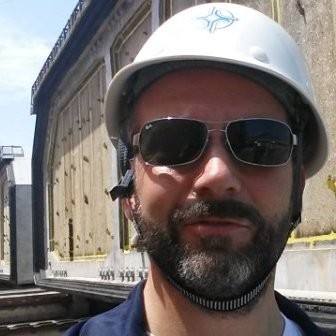
Xavier Szadkowski (Project Engineer at Ballast Nedam)
Xavier is a project engineer at Ballast Nedam, specializing in immersed tunnels. A graduate of TU Delft, he is currently working on the Khor al Zubair Immersed Tunnel project. His experience includes a range of immersion projects in prestigious locations such as Monaco, Sydney, Newcastle upon Tyne, and Venice, Italy. With a strong engineering foundation and diverse international experience, Xavier is passionate about working with teams from across the globe. He believes that construction projects—and all complex endeavors—are ultimately human undertakings, driven by collaboration and shared effort.
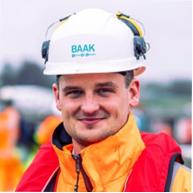
Arne de Jong (Design Engineer at Immontec, PhD Researcher at TUDelft)
After completing his Master’s in Civil Engineering at TU Delft, he began working at Immontec as a design engineer. He has gained experience in both the design and execution phases of several immersed tunnel projects, including the Maasdeltatunnel and the Scheldetunnel.
At the start of this year, he returned to TU Delft to pursue a part-time PhD in collaboration with the Center for Underground Construction (COB). He is passionate about combining the hands-on, practical approach of working with contractors with the intellectual depth of the academic world.
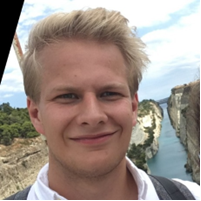
This event will be hosted offline
Location
Royal Institute of Engineers (KIVI), Prinsessegracht 23, 2514 AP Den Haag.
Parking
Please note that parking at the parking spots on Prinsessegracht street is limited to a maximum of 2 hours. If you park more than 2 hours, there is a Q-Park Malieveld located across from the main entrance.
Programme
| 17:30 - 18:00 | Walk in |
| 18:00 - 18:30 | Pizza service |
| 18:30 - 19:00 | René Kuiper: Design of Immersed Tunnels – The Scheldetunnel in Belgium |
| 19:00 - 19:15 | Q&A |
| 19:15 - 19:45 | Xavier Szadkowski : Assessing the Suitability of Coarse Sand for Immersed Tunnels Foundation |
| 19:45 - 20:00 | Q&A |
| 20:00 - 20:30 | Arne de Jong: Environmental causes for deformation and settlement of immersed tunnels |
| 20:30 - 20:45 | Q&A |
| 20:45 - 21:45 | Networking |
